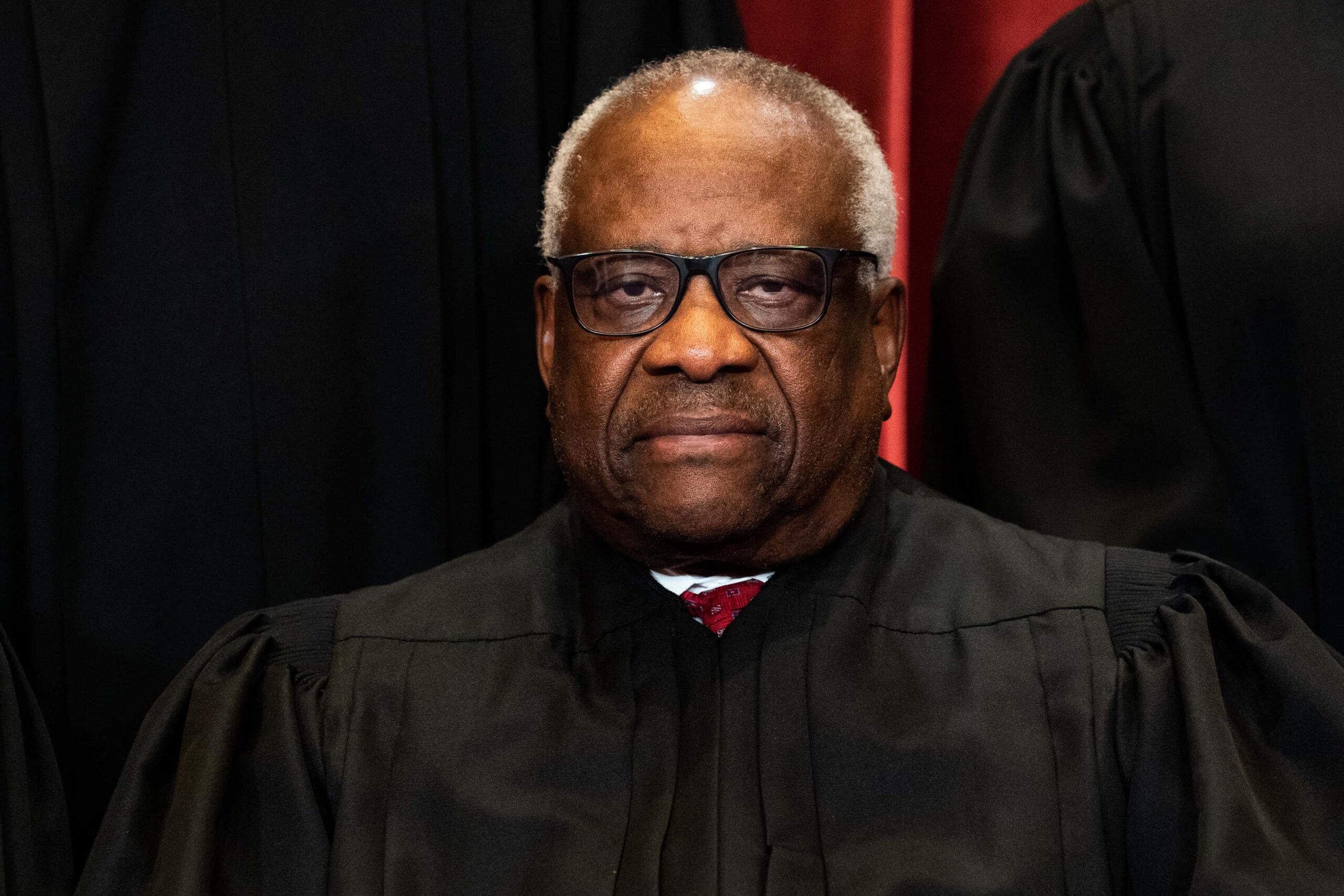In the wake of the U.S. Supreme Court overturning Roe v. Wade, advocates believe the June 24 ruling could have drastic implications for LGBTQ2S+ rights.
In a 6-3 ruling authored by Justice Samuel Alito, the Supreme Court struck down Roe—the landmark 1973 decision guaranteeing a constitutional right to abortion access. Accompanying last week’s decision, Justice Clarence Thomas issued a concurring opinion in which he signalled that numerous other rights are also now in danger. Thomas wrote that his colleagues should “reconsider all of this Court’s substantive due process precedents” in its future decisions.
Thomas specifically went on to name three cases as due for revisiting in the wake of Roe’s repeal. These are 1965’s Griswold v. Connecticut, which secured access to birth control; 2003’s Lawrence v. Texas, which overturned sodomy laws on the books in more than a dozen U.S. states at the time; and 2015’s Obergefell v. Hodges, which legalized same-sex marriage across the country.
“We are outraged. We’re mad as hell. And we’re ready for them.”
Thomas called such precedents “demonstrably erroneous,” which isn’t surprising, given that he dissented on both the Obergefell and Lawrence cases. (Alito, who authored the Dobbs opinion, was not on the bench when Lawrence was decided, but sided with his conservative colleagues on Obergefell.)
Substantive due process is a principle under which the courts protect certain rights as “fundamental,” despite the fact that they are not enumerated in the U.S. Constitution. Roe was one such case, and now that it has been overturned, critics said that the Supreme Court has opened the door to take back many more rights that have been secured under the same principle.
President and CEO of GLAAD Sarah Kate Ellis warned that Thomas’s opinion is a “blaring red alert” for the LGBTQ2S+ community and the U.S. as a whole.
“We will never go back to the dark days of being shut out of hospital rooms, left off of death certificates, refused spousal benefits or any of the other humiliations that took place in the years before Obergefell,” she said in a statement. “And we definitely will not go back to the pre-Lawrence days of being criminalized just because we are LGBTQ.”
Kierra Johnson, executive director of the National LGBTQ Task Force, called the ruling a “huge setback to our long-standing fundamental right to bodily autonomy” and said it will hit marginalized communities the hardest.
“Bans on abortion are deeply racist and profoundly sexist,” Johnson said in a press release. “These are our most basic liberties—to live a life of dignity, private from government interference. The court has no place interfering with our constitutional right to make decisions about our own bodies.”
While Thomas’s opinion is alarming, it’s also non-binding. No other justices signed on to his opinion, as Human Rights Campaign interim president Joni Madison pointed out in a video statement released Friday. There is still cause for concern, however: while Alito’s majority opinion states that the ruling should not “be understood to cast doubt on precedents that do not concern abortion,” Madison said that all the cases mentioned are a part of the “same constitutional fabric.”
“This decision will embolden our opponents to come after all of our hard-won progress,” she added. “We are outraged. We’re mad as hell. And we’re ready for them.”
Thomas and Alito previously hinted at the possibility of overturning Obergefell in October 2020. At the time, the Supreme Court denied an appeal from former Rowan County, Kentucky, clerk Kim Davis, who was jailed for five days for refusing to grant a marriage licence to a gay couple in 2015. Although the court refused to hear her case, Thomas claimed that Davis’s plight indicates that the Obergefell ruling has resulted in “ruinous consequences for religious liberty.”
“Davis may have been one of the first victims of this court’s cavalier treatment of religion in its Obergefell decision, but she will not be the last,” Thomas wrote in an opinion co-signed by Alito.
Some of the Supreme Court’s other decisions this term signal a shift in the tides when it comes to its overall stance on religious liberty. In a Monday ruling in Kennedy v. Bremerton School District, justices sided with a Washington state football coach who lost his job at a public high school for regularly praying on the field after games. Last week, the court struck down a ban on state funding for religious education in a case concerning two schools with a history of anti-LGBTQ2S+ policies.
Despite Thomas’s warning shot, public support for marriage equality has continued to grow. A Gallup poll published earlier this month indicates that more than seven in ten Americans (71 percent) support same-sex marriage, an all-time high.


 Why you can trust Xtra
Why you can trust Xtra


